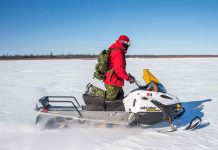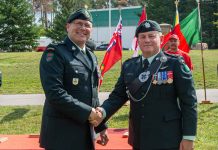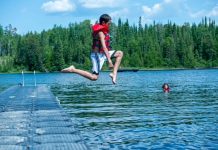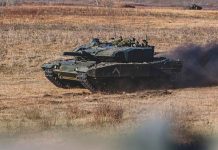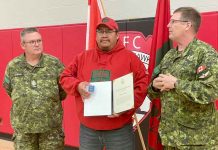
By Peter Moon
THUNDER BAY – The Canadian Rangers are in the midst of a major resupply mission to get military supplies to Ranger patrols in 29 First Nations across the Far North of Ontario.
Because of the COVID-19 pandemic they are the first supplies the Rangers have received in two years.
“Some of the supplies are much needed,” said Major Tom Bell, a company commander at 3rd Canadian Ranger Patrol Group, which is headquartered at Canadian Forces Base Borden near Barrie. “A lot of work has gone into the planning to get all that equipment to those communities. They are usually driven into the First Nations on the winter roads. Because we’ve been so busy with COVID flying them in was the fastest way to get it done this year.”
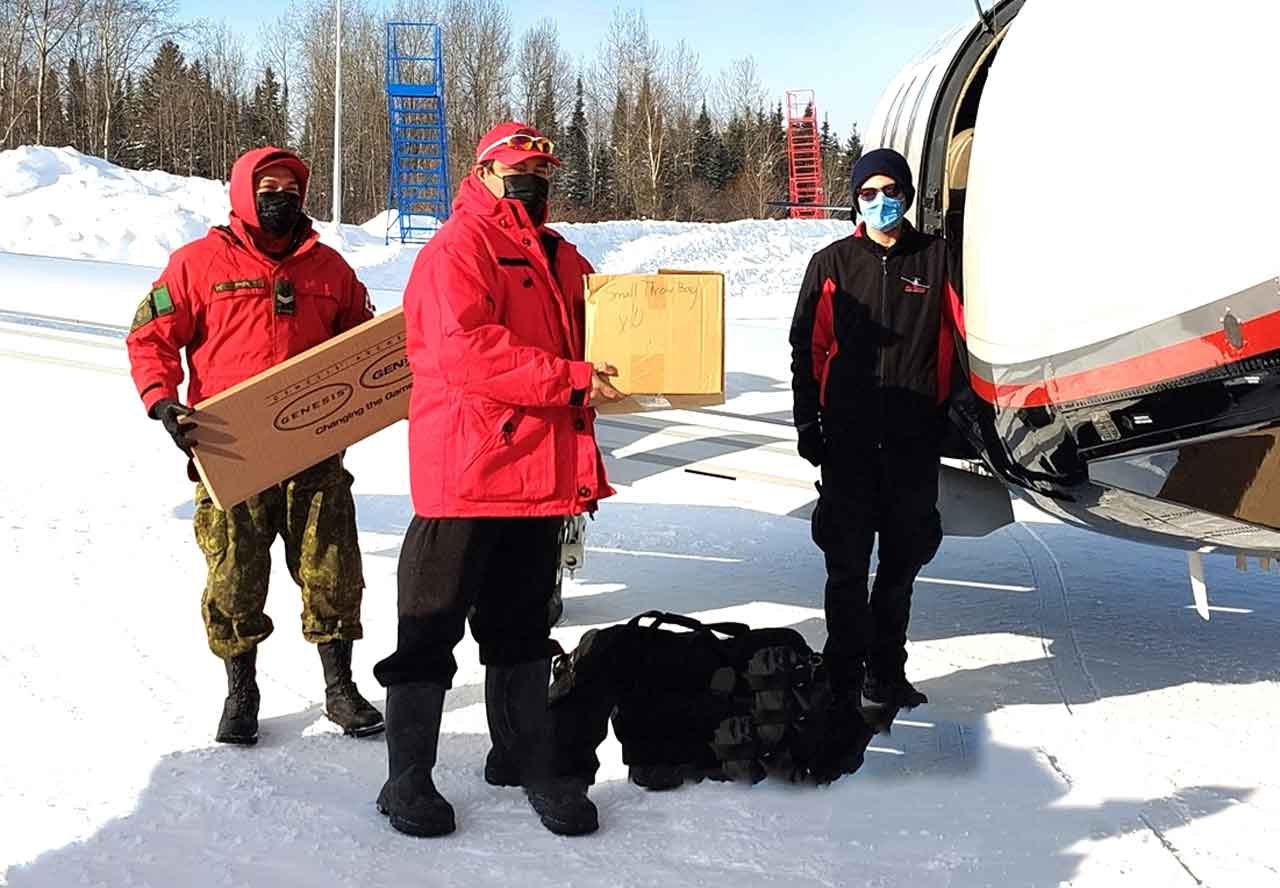
The supplies include equipment for search and rescue and a range of items that include food and fuel, miscellaneous items such as shovels and glow sticks, and small items such as mosquito repellent, and specialized equipment, such as bows and arrows for archery for Junior Canadian Rangers.
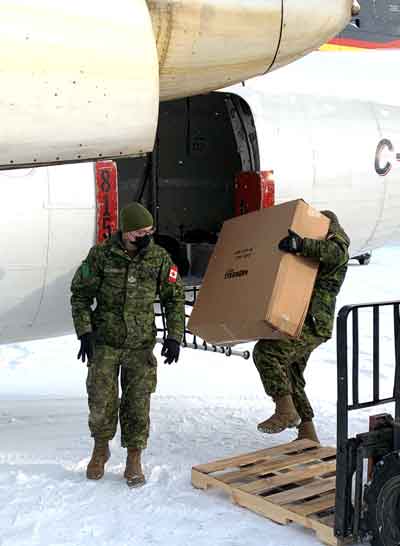
There are 700 Rangers, who are part-time army reservists, in 29 mostly remote and isolated communities across Northern Ontario as well as 800 Junior Rangers. The Junior Rangers are a popular Canadian Army culturally appropriate youth program for boys and girls aged 12 to 18.
The supplies were assembled and driven 1,830 kilometers by truck from Borden to Pickle Lake, a small community 540 kilometers north of Thunder Bay. Pickle Lake is on the most northerly section of paved highway in Ontario.
A team of soldiers loaded the supplies onto planes which flew them from Pickle Lake to the Ranger patrol communities.
“Master Corporal Michael Foster led a team of four soldiers who co-ordinated the loading of charter aircraft in Pickle Lake,” Major Bell said. “They worked at the Wasaya Airways hanger, ensuring that all of the different communities got what they needed. The plan changed several times while they were up there and they did a great job reacting to the changing situation.
“COVID has been a hindrance. Some First Nations refused us entry over fears about COVID. The weather has also been a factor, causing some delays. Working in the North can be challenging. Getting the supplies out has involved about 40 soldiers and Canadian Rangers. They are doing a great job getting those supplies to where they are needed.”
(Sergeant Peter Moon is a Ranger with 3CRPG at CFB Borden.)


